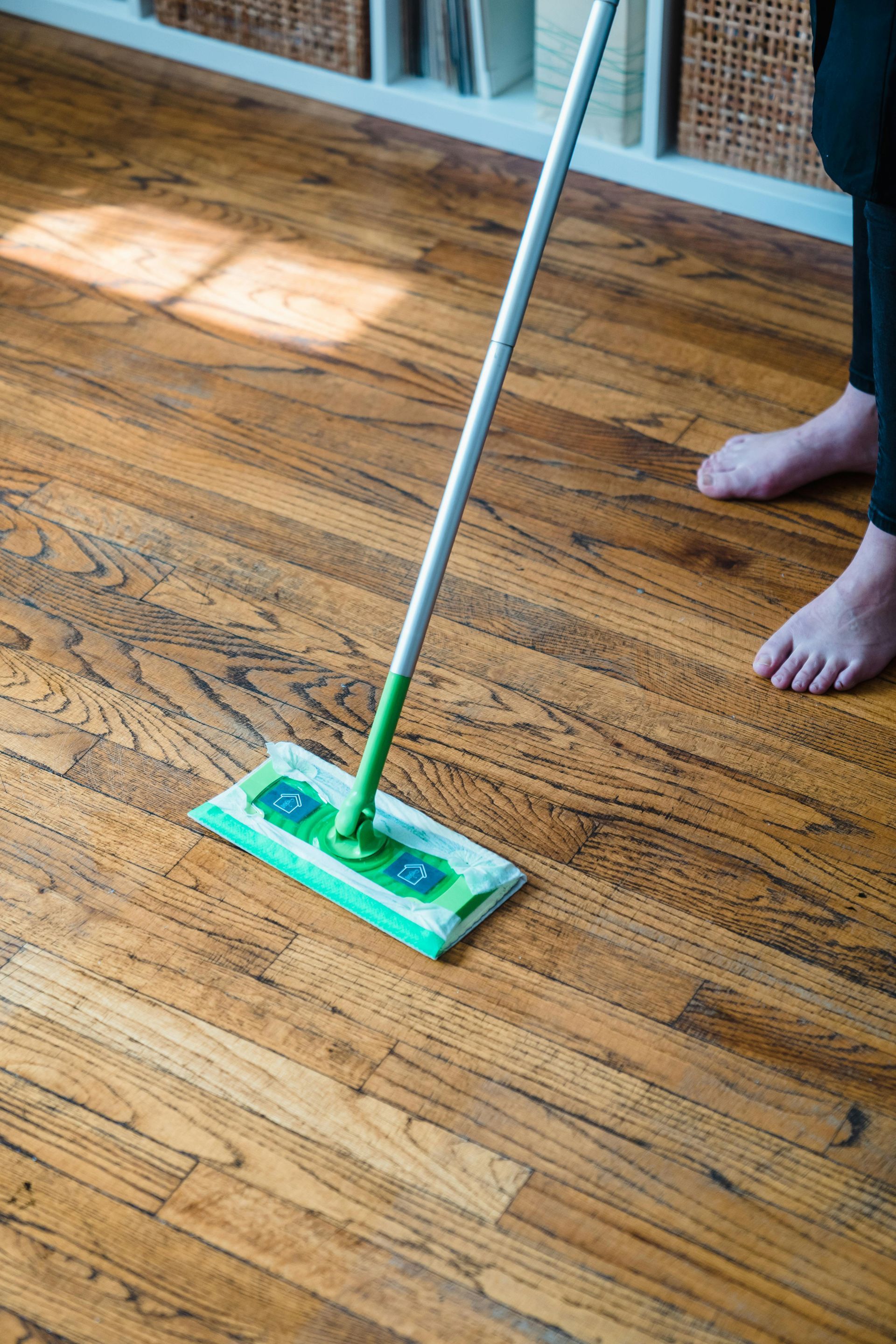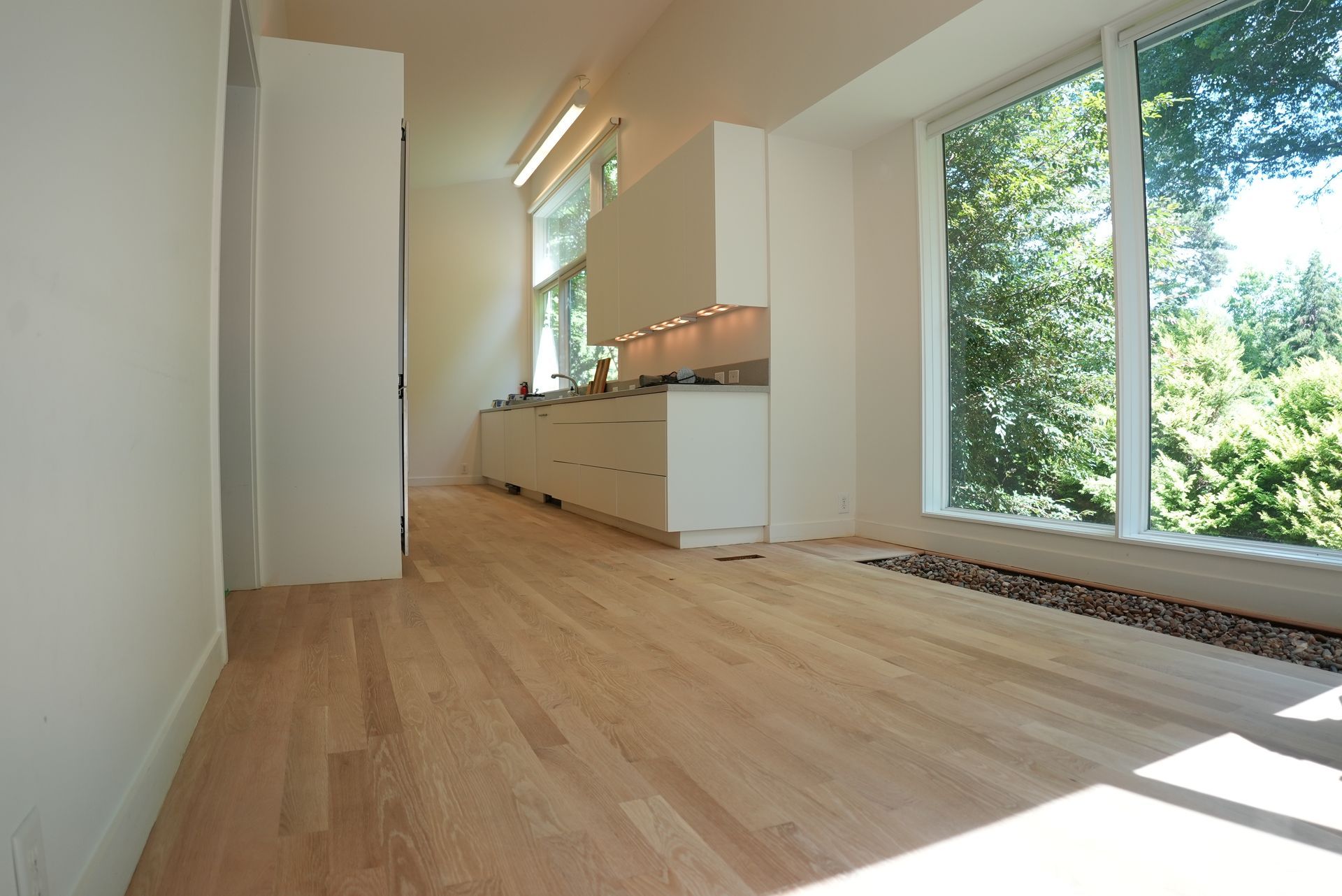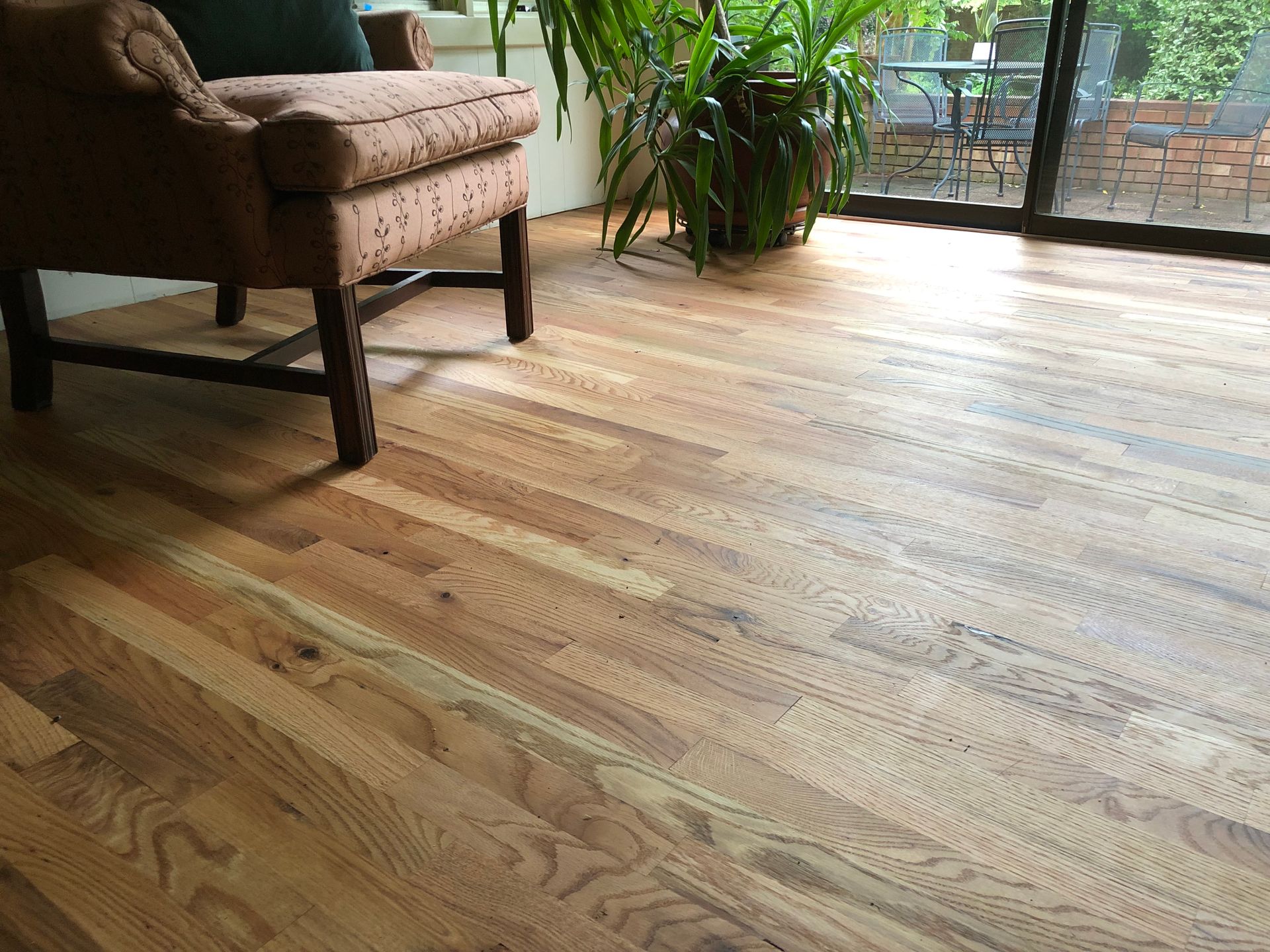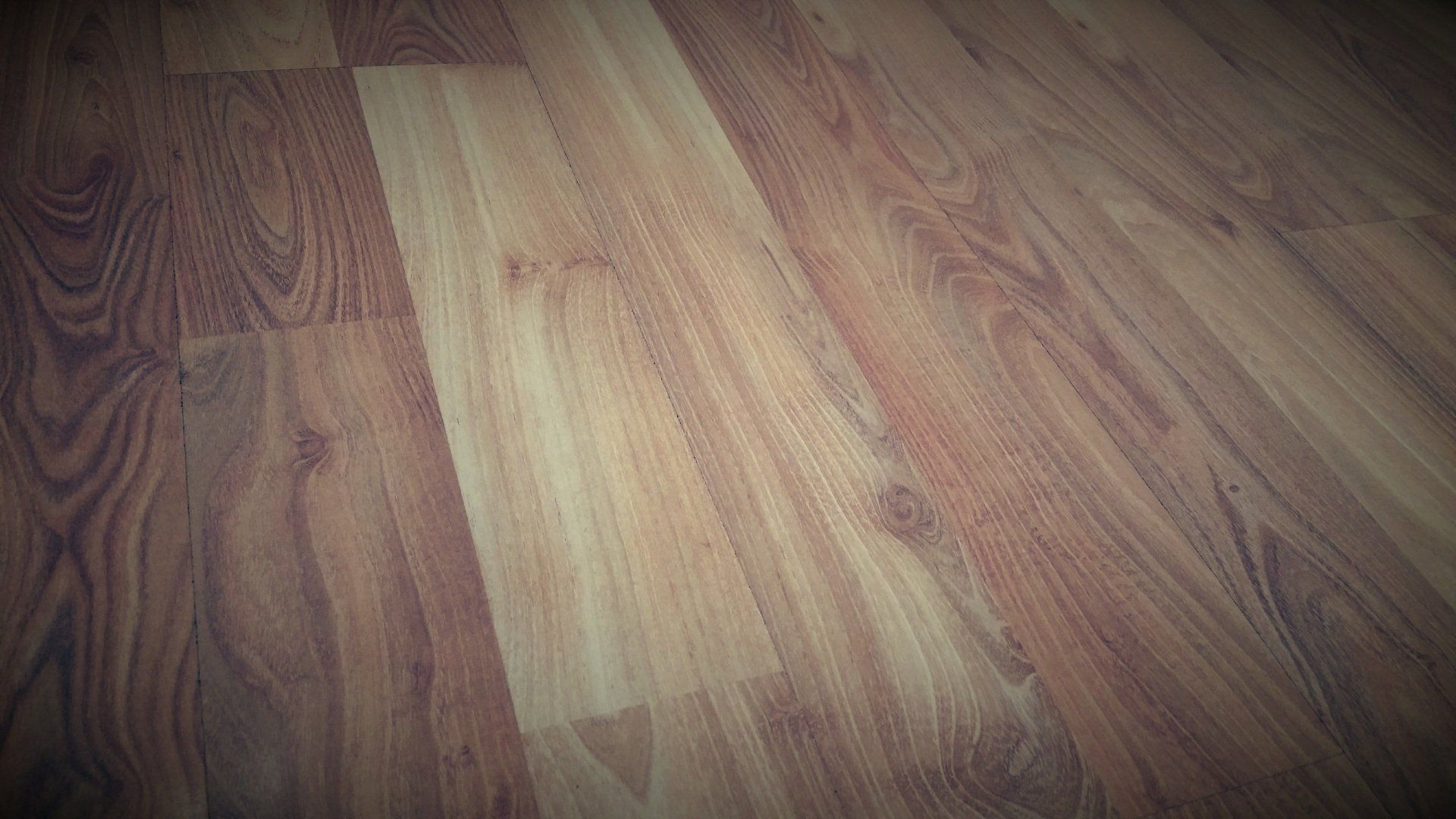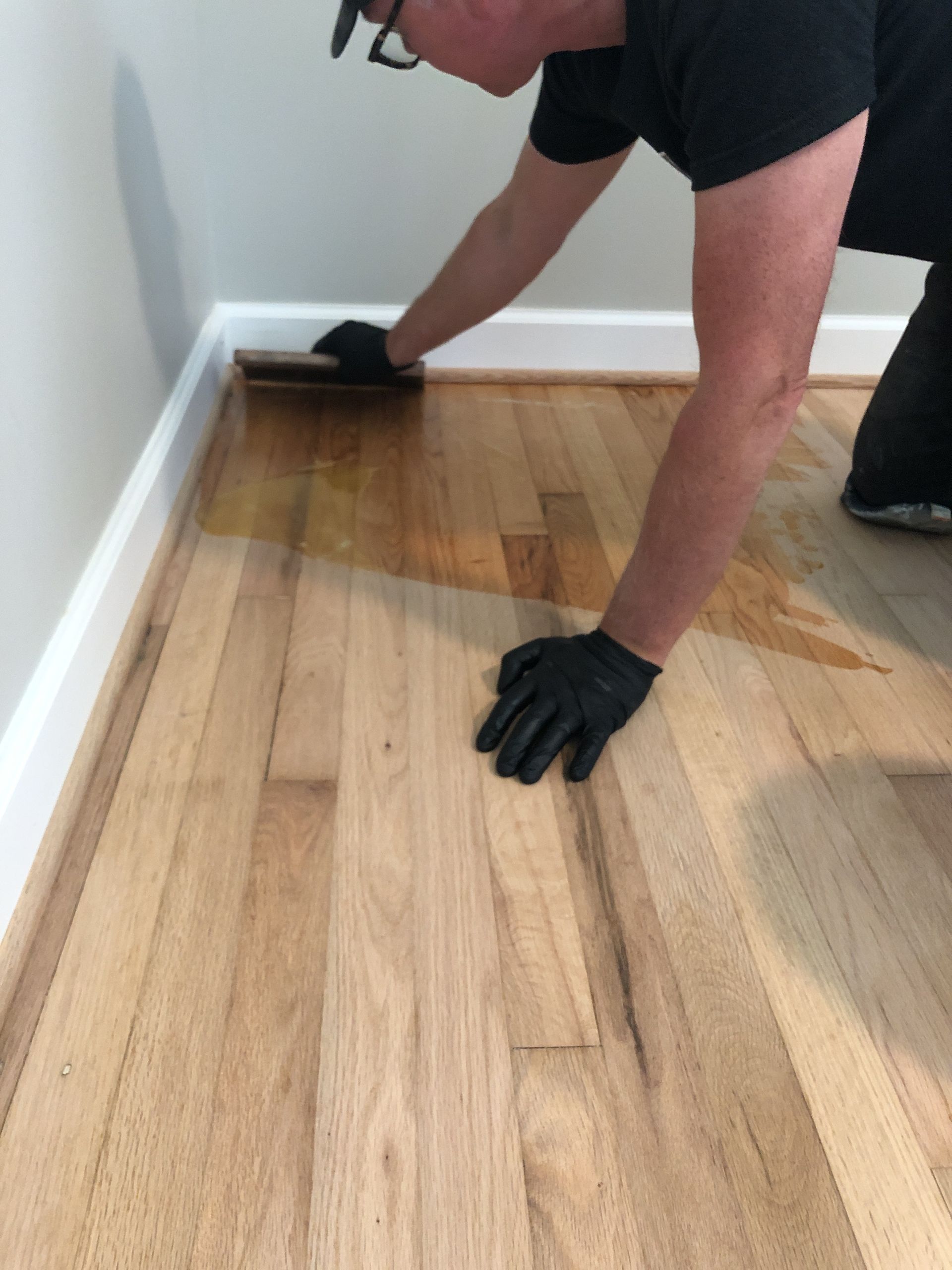When to Install or Refinish Hardwood Floors During Your Home Renovation
Timing is everything during your home renovation.
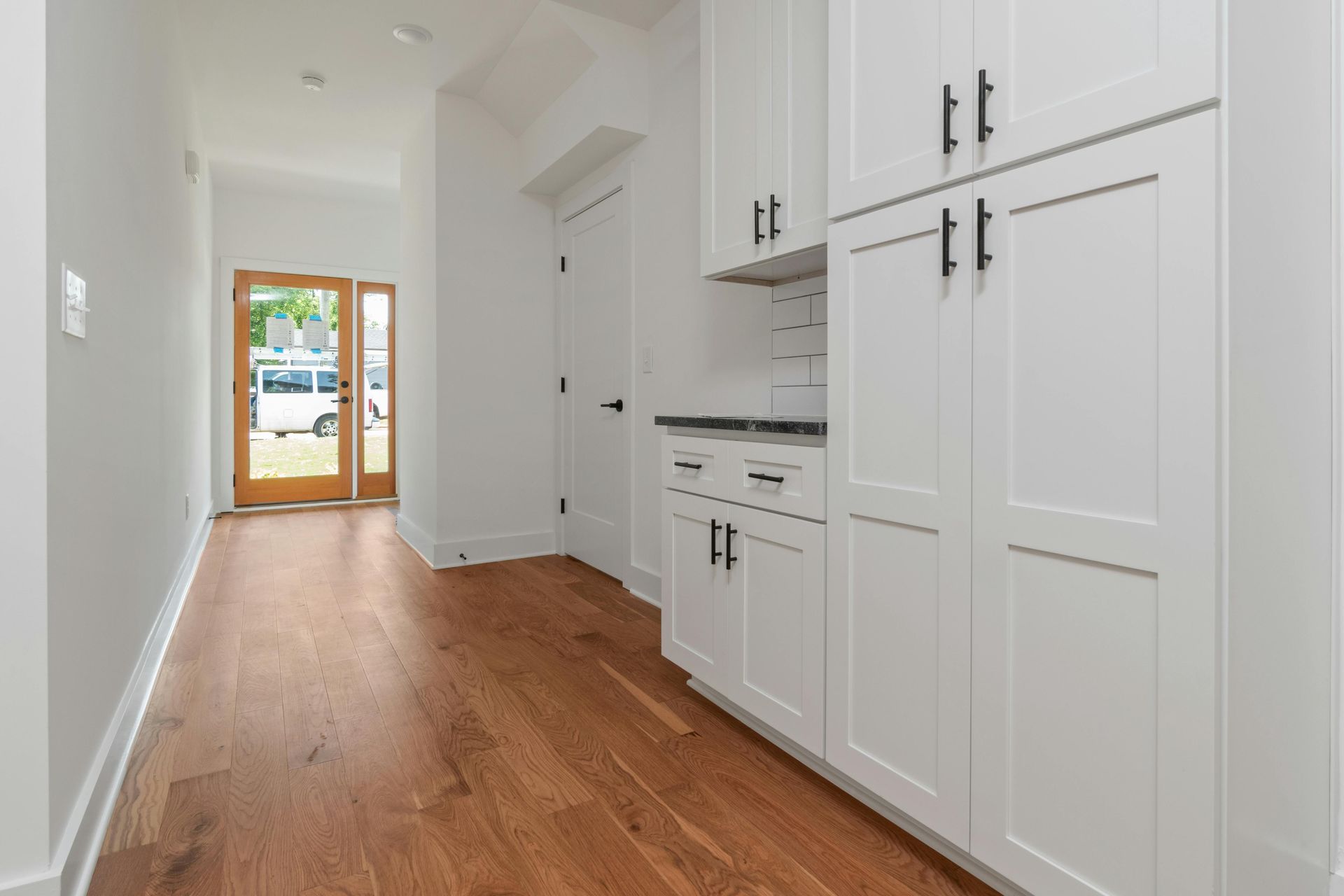
When embarking on a home renovation, many homeowners face the choice of whether to install or refinish hardwood floors. Making the right decision about the timing of these tasks can have a significant impact on the final look and longevity of the flooring, as well as the overall renovation experience. Here’s a comprehensive look at when to install or refinish hardwood floors during a home renovation.
Understanding the Scope of the Home Renovation
Before delving into the flooring specifics, assess the scope of the renovation. Larger home renovation projects involving structural changes, wall removal, or extensive painting will affect the ideal time to work on the floors. Completing these high-impact tasks before refinishing or installing new hardwood floors is generally preferable to prevent damage to the newly finished surface.
Major Renovations
In cases where walls will be taken down, new electrical wiring installed, or significant structural work is planned, hardwood floors should be among the last steps. This avoids potential dents, scratches, and damage caused by construction tools or heavy foot traffic.
Moderate Renovations
If the renovation involves moderate changes, like updating the kitchen or bathroom, painting, or adding new fixtures, these can still impact the hardwood floor. While not as intensive as a structural overhaul, these projects can still involve moving heavy objects, using dust-producing equipment, and working with tools that may harm the floor’s surface.
New Installation vs. Refinishing: Consider the Condition of Your Existing Floors
The decision between installing new hardwood floors or refinishing existing ones depends on the current state of the flooring.
Installing New Hardwood Floors
If your renovation is a full remodel, installing new hardwood floors can offer a fresh start. This is particularly recommended for homeowners who want to change the flooring style or if the existing hardwood is too damaged for refinishing. New installation might also be beneficial if you’re updating multiple rooms and want to unify the flooring across the home.
Refinishing Existing Hardwood Floors
For homes with solid hardwood floors that are structurally sound, refinishing is often a more cost-effective solution. Refinishing allows you to update the look by sanding down the top layer and applying a new stain or finish. If your renovation goals include modernizing the look of your space without full replacement, refinishing is an ideal choice.
Optimal Timing for Installing Hardwood Floors in a Home Renovation
The timing of installing hardwood floors during a renovation will depend on the type of renovation and its schedule. However, a few general guidelines can help.
Install Flooring After Major Structural Work
Any demolition, restructuring, or construction should happen before the floors are installed. Heavy machinery, debris, and constant movement can damage new floors, making it wise to wait until the bulk of structural work is complete.
Plan Flooring Installation Before Cabinetry and Trim
If your renovation includes new cabinetry or trim work, install the hardwood floors before those steps. This ensures that cabinets and trim sit flush with the floor, creating a seamless finish. Additionally, installing the floor first makes it easier to clean up and touch up the floor without the hindrance of cabinets and other fixed elements.
Install After Plumbing and Electrical Work
If your home renovation includes any plumbing or electrical updates, it’s essential to complete those installations before putting in hardwood floors. Plumbing and electrical work involve heavy tools, wires, and possible water exposure, which could lead to spills or mishaps that might harm new floors.
Best Time to Refinish Hardwood Floors in a Home Renovation
Refinishing hardwood floors is best done later in the renovation process, once messy and heavy-duty tasks are complete. Here’s a breakdown of the ideal timing for refinishing.
Finish Last to Avoid Dust and Damage
Refinishing involves sanding and re-coating the hardwood, a process that creates a pristine, smooth finish. Performing it as one of the last steps in the renovation minimizes the risk of damage and keeps the floors looking new when the renovation wraps up. Contractors recommend waiting until after drywall work, painting, and other dust-generating tasks are completed.
Check Humidity Levels for Optimal Results
Because hardwood floors expand and contract with changes in humidity, refinishing is best done in a stable climate to achieve a lasting finish. In humid or rainy seasons, the floor’s wood can swell, while in drier seasons, it may contract. Aim to refinish floors when your home’s humidity is between 35% and 55%, typically achievable with air conditioning or dehumidifiers.
Considerations for Homes Undergoing Major or Multi-Room Renovations
For large-scale renovations, it can be challenging to time floor installations or refinishing perfectly, especially if multiple rooms or floors are involved. However, there are strategies to make the process smoother.
Stagger Installation or Refinishing in Phases
If the renovation is taking place across multiple rooms, consider staggering the hardwood floor work in phases. This approach allows you to complete the flooring room by room, reducing the chance of damage and making it easier to navigate around the home during the renovation. For instance, start by installing floors on one level or area and work systematically throughout the house.
Protect Floors During Ongoing Renovation
If floors are installed or refinished mid-renovation, ensure they’re protected during ongoing work. Use protective coverings, such as rosin paper or floor protectors, to safeguard the surface from dust, paint, and heavy foot traffic. Avoid using plastic sheeting directly on the floor, as it can trap moisture and damage the wood.
The Importance of Hiring Skilled Professionals
Home renovations can be complicated, and hardwood floor installation or refinishing requires skill and experience. Engaging professionals with expertise in flooring ensures that installation or refinishing is done correctly and efficiently.
Professional Advice on Timing
Flooring specialists can assess the specifics of your renovation and recommend an optimal timeline for floor work. They understand the nuances of handling different types of wood and finishes and can provide guidance on managing moisture levels, dust containment, and post-installation care.
Expert Application for Durable Results
Whether installing new hardwood or refinishing existing floors, hiring professionals ensures the work is done with precision. This prevents costly mistakes, such as improper sealing, uneven staining, or poor sanding that can lead to a less durable or unsatisfactory finish.
Final Steps: Sealing and Setting the Renovation Timeline
Once the installation or refinishing is complete, give the floors time to cure properly. Many hardwood finishes need at least 48-72 hours to set fully, depending on the type of sealant used. During this period, minimize foot traffic and avoid placing heavy furniture or appliances on the floor.
Knowing when to install or refinish hardwood floors during a home renovation can make a substantial difference in the quality and longevity of your flooring. From waiting until major construction is complete to planning around cabinetry and humidity levels, the timing of your flooring work will shape the overall outcome of your renovation. Whether you’re opting for a fresh hardwood installation or a revitalizing refinish, taking a strategic approach ensures your floors become a lasting, beautiful foundation for your home.

